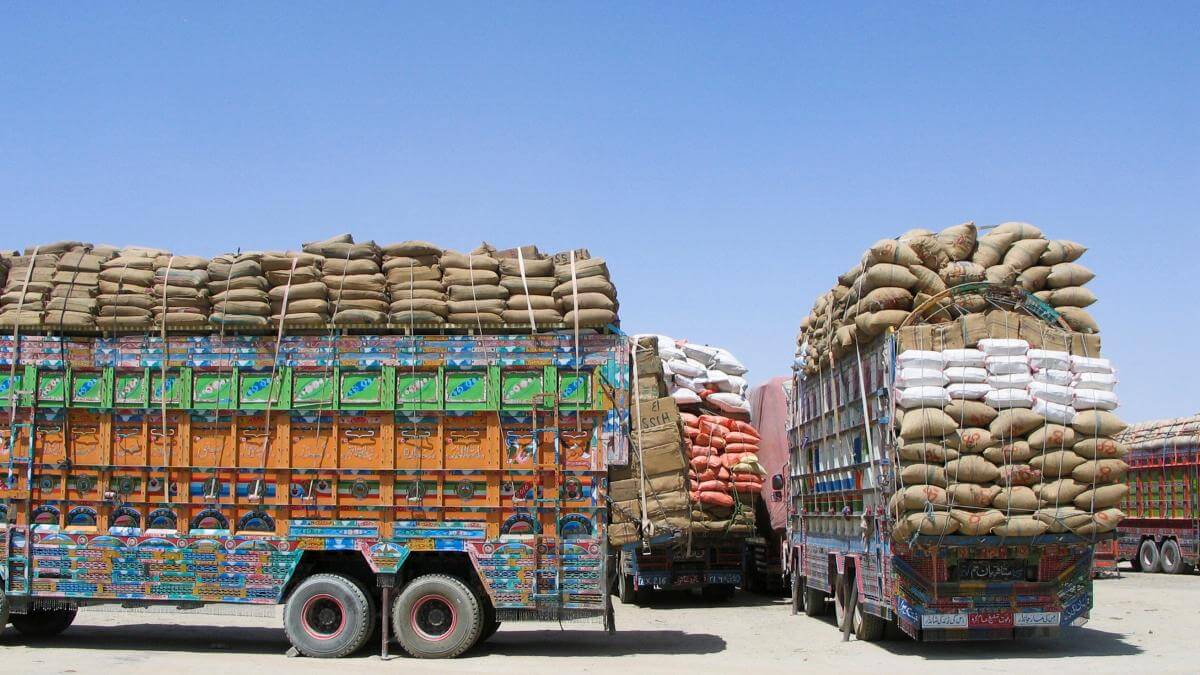Pakistan continues to delay its response to India’s request to allow the passage of its trucks to Afghanistan, thereby restricting the movement of aid, including essential food grains such as wheat, to the war-torn country, which is already facing a food shortage.
The Indian side sent a note verbale to the Pakistani government requesting approval for the passage of 5,000 trucks carrying 50,000 metric tonnes of wheat to Afghanistan. India has also expressed its desire to send medical aid.
According to officials quoted by the Indian Express, India has been waiting for Pakistan to accept the proposal to allow them to dispatch humanitarian aid. They said that allowing access to the land route is critical, as transporting such large quantities of food grains via air is extremely difficult.
The officials said the Pakistani side continues to assess the proposal to work out the logistics in terms of routes and the number of trucks. However, the logistical assessment suggests that allowing Indian trucks to pass would be necessary to avoid loading and unloading the goods at the Wagah-Attari borders.
India has expressed its willingness to provide humanitarian aid to Afghanistan despite refusing to recognise the Taliban administration. In October, the Indian side met with representatives of the Taliban on the sidelines of the Moscow Format meeting on the crisis in Afghanistan.
According to Taliban spokesperson Zabihullah Mujahid, the Indian side expressed its readiness to dispatch humanitarian aid to Afghanistan. He said the two sides also agreed on the need to further their diplomatic and economic relations. Mujahid added that the Indian delegation acknowledged the need to “take into account the new reality” in Afghanistan as the Taliban takes control.
Additionally, last week, Indian Prime Minister Narendra Modi spoke of the need to provide humanitarian aid to the Afghan people at the G20 World Leaders’ conference. However, India has underscored the need to ensure direct access to aid through mechanisms that would help in the non-discriminatory distribution of aid.
India is a significant supplier of wheat to Afghanistan, having delivered over a million metric tonnes to the country over the past decade. Last year alone, India donated 75,000 metric tonnes of wheat to Afghanistan. With winter coming, the food shortage continues to aggravate the humanitarian crisis in the country. In fact, in September, 3.8 million people received food aid, and 21,000 children and 10,000 women received treatment for acute malnutrition. Against this backdrop, the World Food Programme (WFP) has expressed hope that Pakistan will soon approve the delivery of aid from India, with WFP Country Director in Afghanistan Mary-Ellen McGroarty saying that Afghanistan currently has a “wheat shortfall of 2.5 million tonnes.”
Keeping this in mind, China and Turkey have already dispatched aid to Afghanistan. However, a swift resolution to the delivery of aid from India through Pakistan does not appear to be on the cards. Pakistani National Security Adviser Moeed Yusuf has said that he will not attend the India-led meeting between regional security chiefs in New Delhi next week, describing India as a “spoiler” in Afghanistan.
Pakistan Delays Decision to Approve Passage of Indian Aid Trucks to Afghanistan
As India seeks to deliver wheat to mitigate Afghanistan’s ongoing food crisis, Pakistan delays the decision on the passage of Indian trucks to reach the war-torn country.
November 3, 2021

SOURCE: INDIA NEWS REPUBLIC
